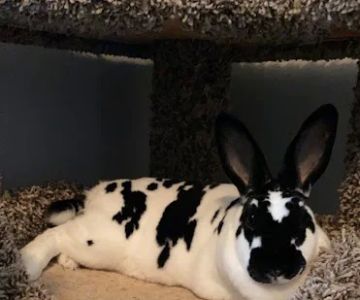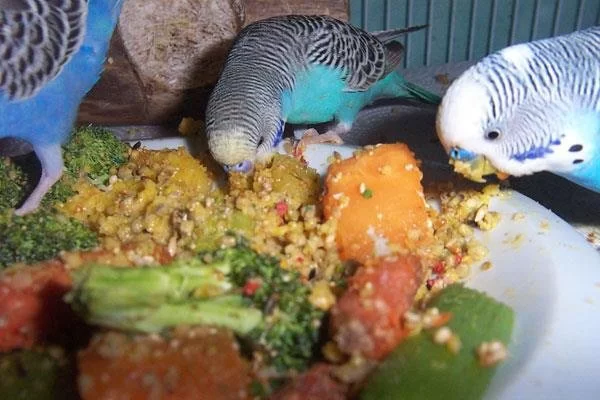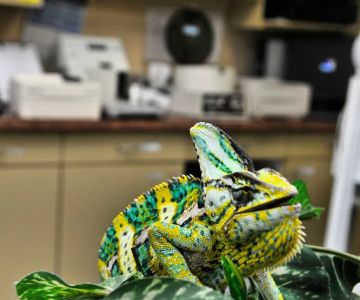- Why Homemade Bird Seed Mixes Are Beneficial
- Key Ingredients for Nutritious Bird Seed Mixes
- Preparing and Storing Your Mix
- Real-Life Experience with Homemade Mixes
- Professional Advice for Exotic Bird Diet
1. Why Homemade Bird Seed Mixes Are Beneficial
Providing the best nutrition for exotic birds and parrots often starts with the food they eat daily. Homemade bird seed mixes give bird owners full control over the quality and variety of ingredients, ensuring that their feathered companions receive a balanced and wholesome diet. Unlike commercial mixes, which may contain fillers, additives, or low-quality seeds, homemade blends can be customized to meet the specific nutritional needs of different species.
Moreover, tailoring seed mixes at home can help prevent common health problems such as obesity, vitamin deficiencies, or digestive issues. It also encourages more natural feeding behaviors, as birds can forage and select seeds as they would in the wild.

9330 Waldemar Rd, Indianapolis, IN 46268, USA
See Details1.1 Addressing Species-Specific Needs
Exotic birds and parrots vary widely in their dietary requirements. For example, larger parrots often need more protein and fat, while smaller exotic birds might require more fiber and vitamins. Creating homemade bird seed mixes allows you to adjust ingredients accordingly, enhancing your bird’s vitality and lifespan.
1.2 Avoiding Unwanted Ingredients
Many commercial seed blends include colored seeds or coated grains that may not be ideal for your bird. By making your own mix, you eliminate unwanted additives, preservatives, or pesticides, giving your bird a cleaner, healthier diet.
2. Key Ingredients for Nutritious Bird Seed Mixes
A good homemade bird seed mix balances variety, nutrition, and palatability. Here are some key components to consider when preparing mixes for exotic birds and parrots:
2.1 Seeds and Grains
Start with a base of high-quality seeds such as millet, safflower, sunflower, and canary seed. Whole grains like quinoa, barley, and oats add valuable carbohydrates and fiber. These form the energy foundation of your bird’s diet.
2.2 Nuts and Legumes
Adding chopped nuts like almonds, walnuts, and pecans offers healthy fats and proteins essential for active and growing birds. Legumes such as lentils and chickpeas, when cooked, provide an excellent plant-based protein source.
2.3 Fruits and Vegetables
While not typically included in dry mixes, fresh or dried fruits and vegetables such as apples, carrots, and kale can be mixed in small amounts or offered alongside the seed mix. They provide important vitamins and antioxidants.
2.4 Supplements and Extras
To round out nutrition, consider sprinkling some crushed eggshells or cuttlebone powder for calcium. Spirulina powder or nutritional yeast can also be added for additional vitamins and minerals.
3. Preparing and Storing Your Mix
Preparation and storage are just as important as ingredient selection. Follow these guidelines to ensure your homemade bird seed mixes remain fresh and safe:
3.1 Proper Cleaning and Preparation
Always wash grains and legumes thoroughly and cook beans to eliminate toxins. Dry seeds and nuts well to prevent mold growth. Using clean containers and utensils helps avoid contamination.
3.2 Portion Control and Rotation
Prepare mixes in small batches to maintain freshness. Rotate ingredients regularly to provide nutritional variety and prevent boredom in your birds.
3.3 Storage Conditions
Store your mixes in airtight containers, in a cool, dry place away from direct sunlight. This preserves nutrients and prevents spoilage.
4. Real-Life Experience with Homemade Mixes
Emily, an exotic bird enthusiast, shares her journey of switching her African Grey Parrot’s diet to homemade bird seed mixes. After years of using commercial brands, Emily noticed her bird’s feathers losing luster and reduced activity levels. Consulting with avian nutrition experts, she crafted a mix rich in nuts, seeds, and fresh supplements tailored to her parrot’s needs.
Within a few months, Emily observed a noticeable improvement in her bird’s energy, vocalization, and feather condition. This personal story highlights the impact of a carefully designed homemade diet and the importance of ongoing attention to exotic bird nutrition.
5. Professional Advice for Exotic Bird Diet
While homemade bird seed mixes can greatly benefit exotic birds and parrots, it is essential to consult with avian veterinarians or nutrition specialists to ensure the diet meets all health requirements. Hidden Brook Veterinary provides expert guidance and offers access to high-quality ingredients and supplements tailored for exotic birds.
Their professional advice can help you avoid common pitfalls and design balanced diets that support your bird’s health, longevity, and happiness. Partnering with knowledgeable providers ensures your feathered friends thrive on every meal.











